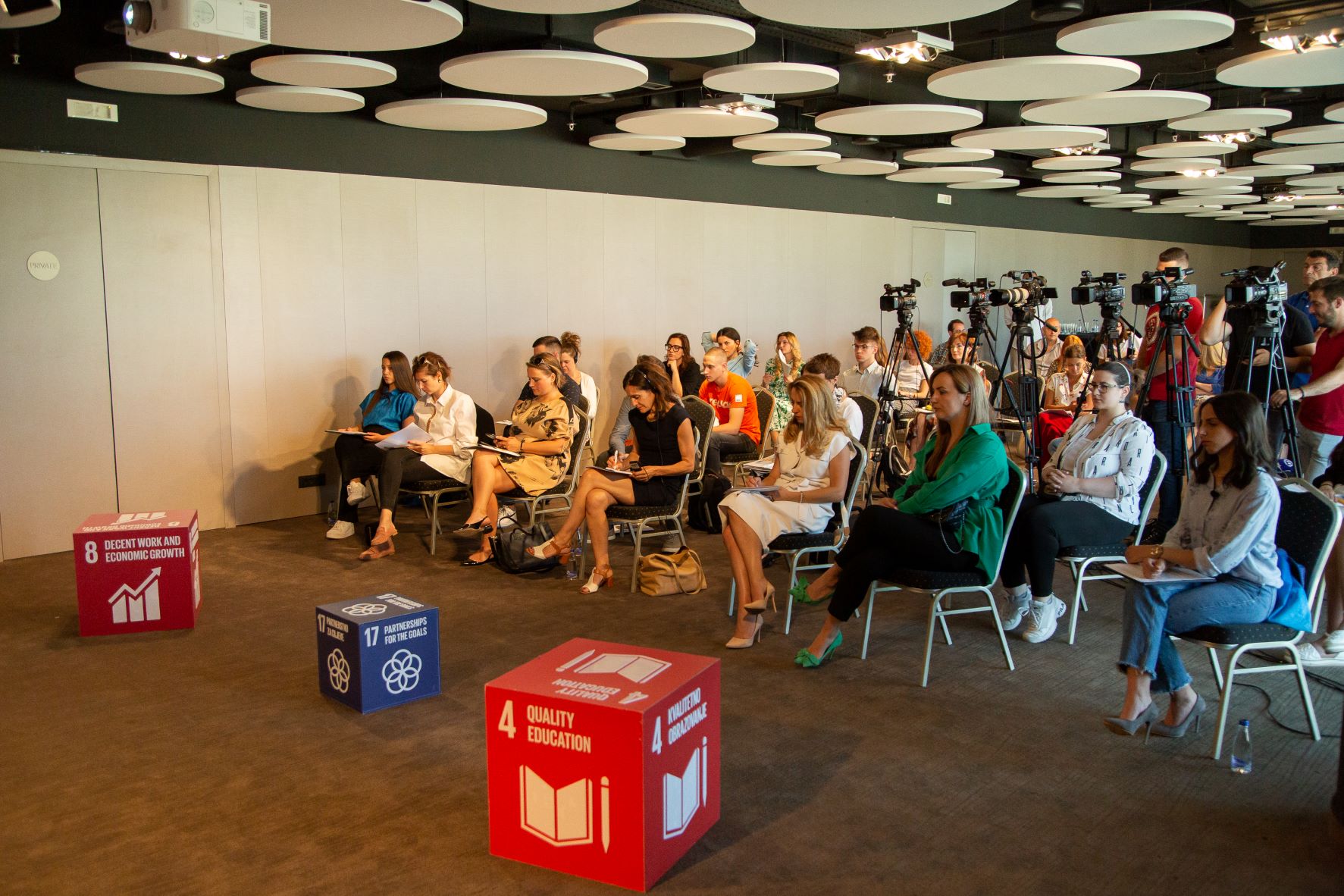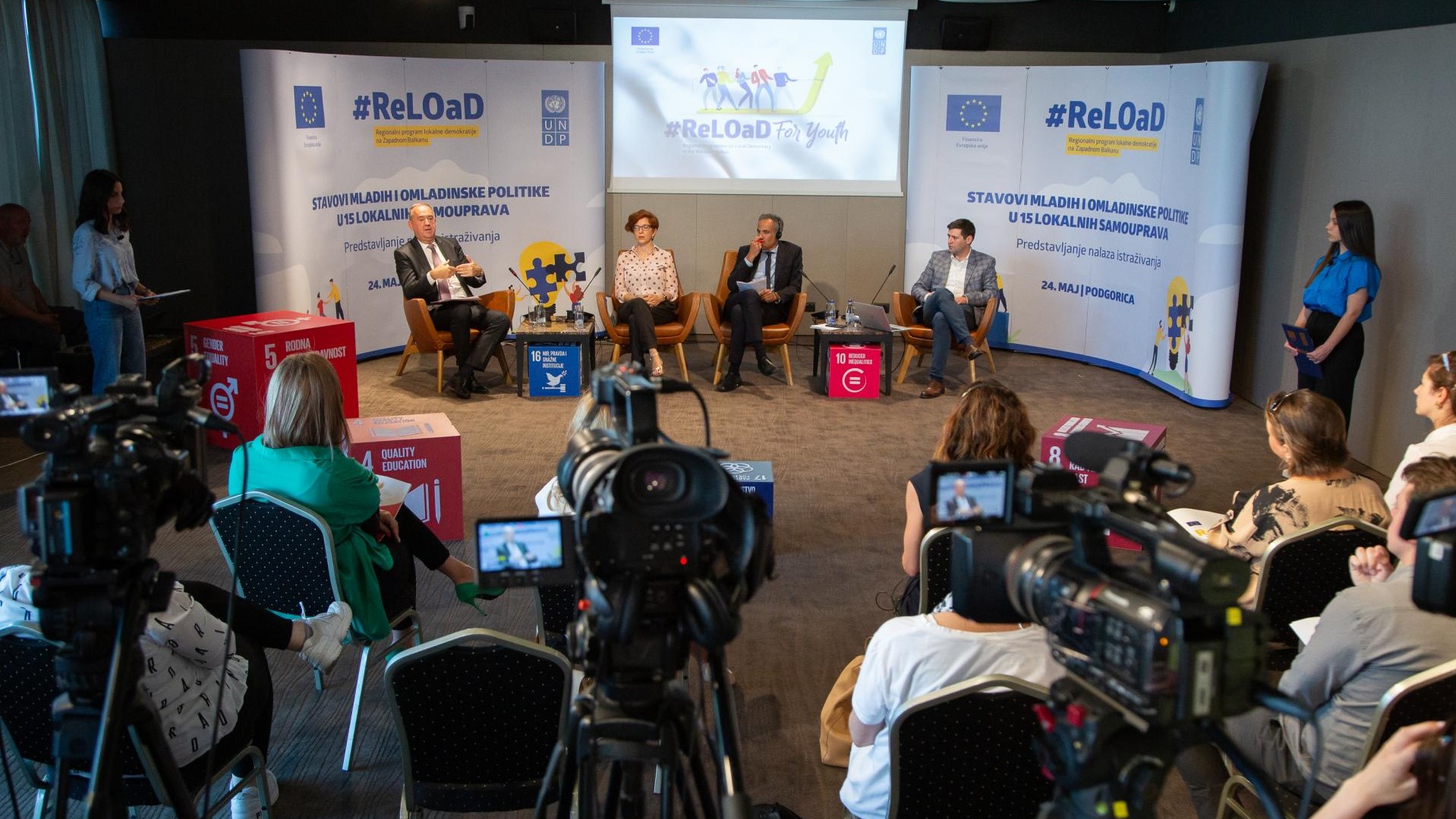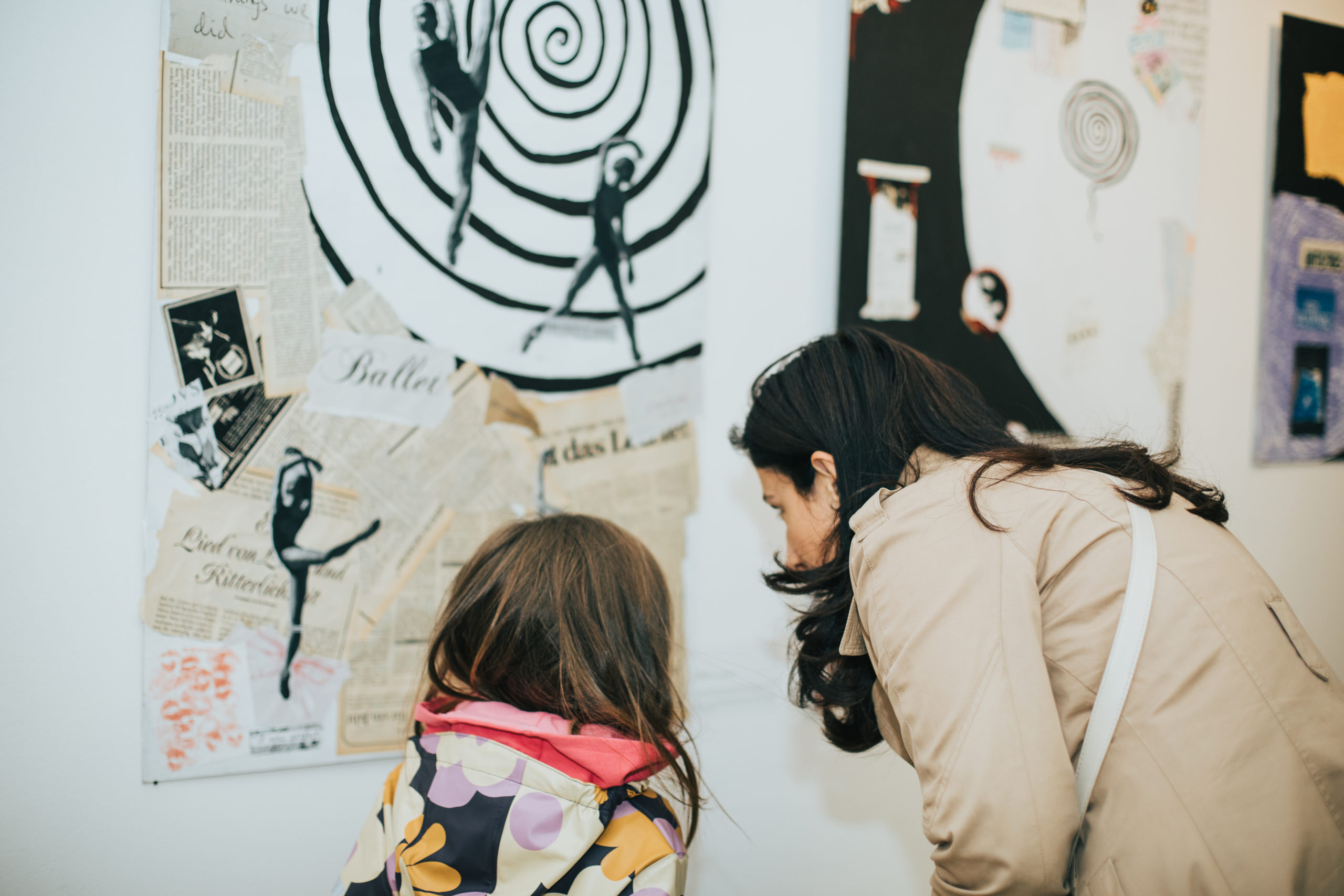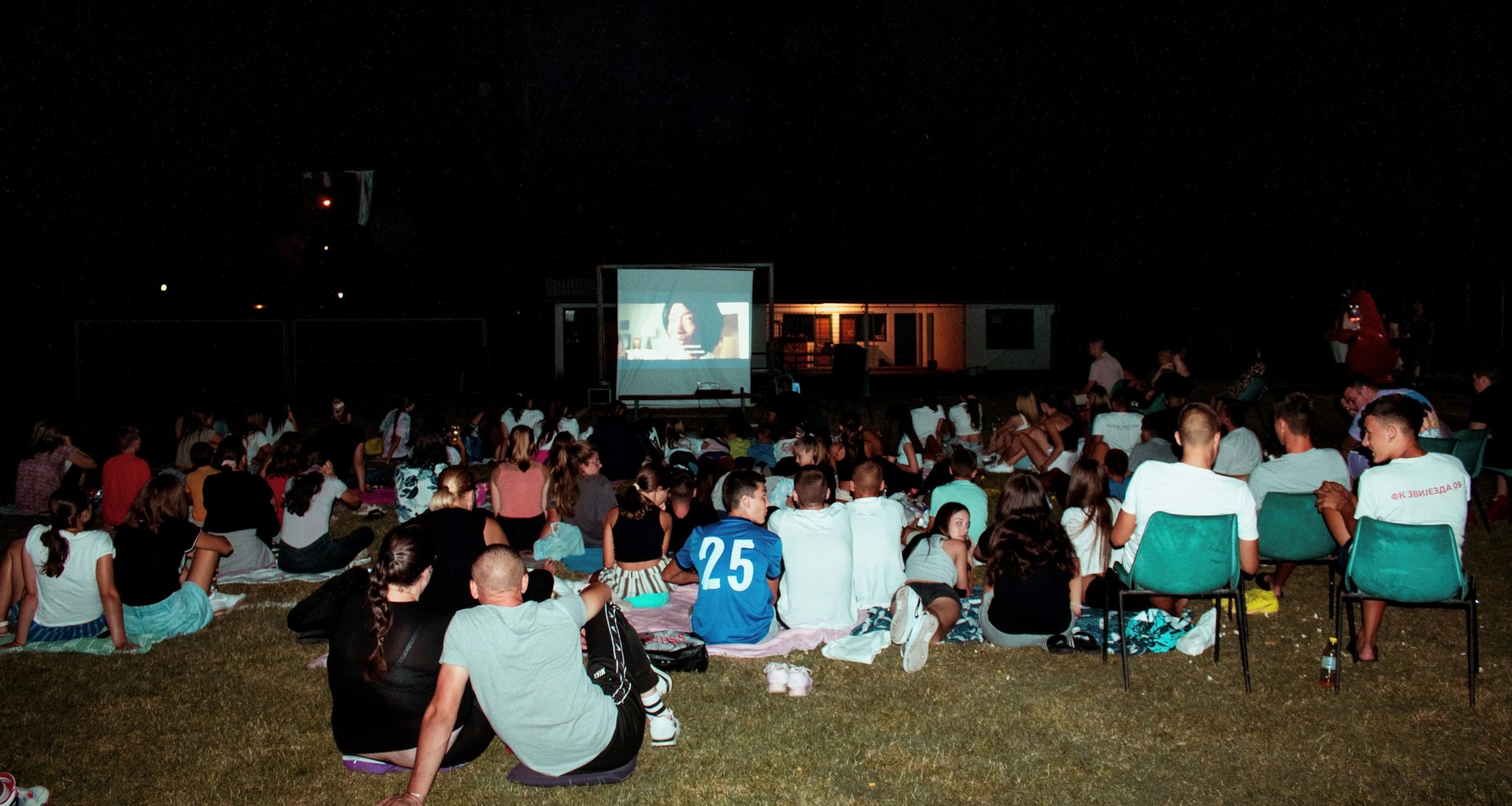Podgorica, May 24, 2022 – The low level of participation of young citizens in public life at the local level has been recognized as a problem by various institutions, the non-governmental sector and young people themselves. Encouraging critical thinking and supporting young people to launch initiatives are priorities for the entire society – this was said at the presentation of the results of the Survey on the attitudes and needs of young people and the assessment of local youth policies in 15 municipalities of Montenegro.
The most important reason for dissatisfaction in most municipalities is the poor overall quality of life, caused by poor employment opportunities, quality of education and availability of culture, sports and other content for young people. All this influences young people to think about leaving both the municipality and the state. The largest percentage of such young people, predominantly young women, is in Danilovgrad (68.3%), Cetinje (52.4%) and Andrijevica (51.9%).

Dr. Vojin Golubović, an expert in socio-economic analyses and a member of the Institute for Strategic Studies and Projections who conducted the research, warned that labor market opportunities and dissatisfaction reflect the lack of desire of young people to advance especially the loss of interest in them. For example, 43.7% of young people who were surveyed never attend cultural events (museums, galleries and theaters); one-third of them go to concerts and music events only a few times a year or less often; and almost half of the respondents never attend sporting events. Thus, more than 60% of young people from Nikšić do not have a hobby, while 75% of young people in the Capital City Podgorica have never participated in non-formal education.
More than half of the respondents (57.8%) do not believe that there is a job opportunity for them, and most of them are young men. This is especially noticeable in the municipalities of Kolašin, Budva, Plužine and Pljevlja. Such thinking can also lead to distrust in the institutions of the system, as indicated by the fact that almost a third (31.9%) of young people surveyed did not register with the Employment Service.
Opening the conference, Minister of Sports and Youth Vasilije Lalošević said that it was very important for young people in their communities to establish a quality dialogue with local authorities to support the implementation of various activities for and with young people. “Particular attention should be paid to creating a supportive environment for young people who belong to vulnerable groups with the aim of integrating them in all areas of social action. In the coming period, the Ministry of Sports and Youth will work even more intensively on creating a new strategic framework for youth policy and adopting more efficient legal solutions that regulate areas of interest to young people. The results of the research will be of great importance to us and provide guidance in terms of the course it is necessary to take when creating policies for young people“, he said.
UNDP Resident Representative for Montenegro Daniela Gašparikova said that the ReLOaD initiative exists in order to create a society that fits all, without leaving anyone behind. “One of the priority goals is to involve young people in the development of their respective communities. I believe that the results of the research will serve decision makers as a starting point in creating policies and programs for young people and the challenges they face,“ Gašparikova said. She added that in that process, we must not forget that young people are not a single category and that we must keep in mind the different needs of young women and young men, as well as specific obstacles faced by young members of minorities or other marginalized groups.
“As we slowly come out of the unprecedented health crisis, the EU recognizes the impact of the pandemic on young people. That is why we have decided to declare 2022 the European Year of Youth. We put a lot of effort into helping young people and supporting their good initiatives. We want to involve them in decision-making processes, as well as to improve the situation when it comes to opportunities for their employment and education. The results of the Survey on the attitudes and needs of young people give us a useful insight into the problems of Montenegrin youth and are a good starting point when it comes to developing our future projects, which should bring concrete improvements to young people,“ Riccardo Serri, Deputy Head of the EU Delegation to Montenegro said.

The survey was conducted in the context of the Regional Program on Local Democracy in the Western Balkans 2 (ReLOaD2) initiative, a project that is implemented by the United Nations Development Program (UNDP) in Montenegro, with the financial support of the European Union. The analysis included an assessment of existing legal frameworks and strategies, a focus group with young people in 15 municipalities, in-depth interviews with decision-makers, as well as quantitative research on a sample of 1,818 young people. The goal of the ReLOaD program is, among other things, to empower young people to get involved in decision-making and improve their economic situation. In order to better understand the needs and habits of young people, the research covered a whole set of issues important for the life and engagement of young people in the 15 municipalities participating in the project within five clusters:
Tara – the municipalities of Mojkovac, Kolašin and Pljevlja,
Coastal Mates – the municipalities of Budva, Herceg Novi, Kotor and Tivat,
Together for the North – the municipalities of Andrijevica and Berane,
Nikšić and Plužine Together – the municipalities of Nikšić and Plužine,
Central region – the Capital City Podgorica, the Old Royal Capital Cetinje, the municipality within the Capital City Podgorica – Golubovci and the municipality of Danilovgrad.
Read the survey results in Montenegrin here.
Red the Summary of Findings and Conculsions in English here.



